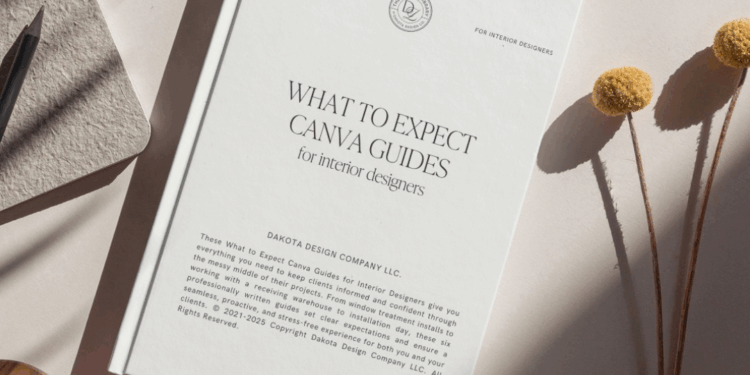
As Working With Interior Designers: What to Expect takes center stage, this opening passage beckons readers with an engaging insight into the world of interior design. From understanding the role of interior designers to the collaborative process and benefits, this topic promises a captivating exploration of what to expect when working with these professionals.
What to Expect When Working with Interior Designers

When embarking on a home design project, collaborating with an interior designer can greatly enhance the outcome by bringing expertise, creativity, and a fresh perspective to the table.
Role of an Interior Designer
An interior designer plays a crucial role in translating your vision into a reality, considering factors like functionality, aesthetics, and budget constraints. They are skilled in space planning, color schemes, furniture selection, and overall design concepts.
Collaborating Process
The typical process of working with an interior designer involves initial consultations to discuss your goals, preferences, and budget. From there, the designer will create mood boards, floor plans, and 3D renderings to visualize the design concept. Collaborative decision-making and feedback sessions are integral to the process.
Benefits of Hiring an Interior Designer
- Access to a network of resources and suppliers for quality materials and furnishings.
- Expertise in maximizing space utilization and creating functional layouts.
- Professional guidance in selecting cohesive color palettes, textures, and finishes.
- Time and cost savings through efficient project management and avoiding costly mistakes.
- Enhanced aesthetic appeal and personalized design tailored to your lifestyle and taste.
Initial Consultation with an Interior Designer
During the initial consultation with an interior designer, the designer typically aims to understand the client's preferences, requirements, and vision for the space. This meeting sets the foundation for the entire design process and allows the designer to gather necessary information to create a personalized design plan.
Information Gathering
- The designer will ask questions about the client's lifestyle, habits, and design preferences to get a clear idea of the client's style.
- They may discuss the scope of the project, budget constraints, and any specific requirements the client may have.
- The designer may request inspiration images or samples to better grasp the client's aesthetic preferences.
Importance of Clear Communication
- Establishing clear communication during the initial consultation is crucial for both parties to ensure that expectations are aligned.
- Clear communication helps in avoiding misunderstandings and ensures that the designer accurately interprets the client's vision.
- It allows the designer to provide insights and recommendations based on the client's needs and preferences.
Design Concept Development
Developing a design concept is a crucial part of the interior design process. This stage involves translating the client's vision and requirements into a cohesive design plan that sets the tone for the entire project.
Methods for Creating Design Concepts
Interior designers use various methods to bring design concepts to life. One common approach is creating mood boards, which are visual collages that capture the desired aesthetic, color scheme, textures, and overall feel of the space. These mood boards serve as a reference point throughout the design process, ensuring that the final outcome aligns with the initial vision.Design sketches are another valuable tool used by interior designers to explore different layout options, furniture arrangements, and decorative elements.
These sketches help clients visualize the proposed design concepts and provide a tangible representation of the final result.
Incorporating Client Feedback
Client feedback plays a crucial role in the design development process. Interior designers actively seek input from clients at every stage to ensure that the design aligns with their preferences and expectations. By incorporating client feedback, designers can make necessary adjustments, refine the design concept, and ultimately deliver a space that reflects the client's vision while exceeding their expectations
Material Selection and Procurement
When working with interior designers, the process of material selection and procurement plays a crucial role in bringing the design concept to life. Designers work closely with clients to choose the right materials, furniture, and decor items that align with the overall vision for the space.
Sourcing Materials
Interior designers have access to a wide range of suppliers, showrooms, and resources to source high-quality materials for their projects. They carefully select materials that not only enhance the aesthetic appeal of the space but also meet the functional requirements of the design.
Designers often have established relationships with vendors, which allows them to access exclusive products and discounts for their clients.
Managing Procurement Process
Once materials are selected, interior designers take on the responsibility of managing the procurement process. This involves coordinating with vendors, placing orders, tracking deliveries, and ensuring that all items arrive on schedule. Designers handle the logistics to ensure that the materials are delivered and installed correctly, taking the burden off the client's shoulders.
Budgeting and Timelines
Budgeting is a critical aspect of material selection and procurement. Interior designers work within the client's budget constraints to source materials that offer the best value for money without compromising on quality. They provide cost estimates and help prioritize where to allocate the budget for maximum impact.
Additionally, designers pay close attention to timelines to ensure that materials are ordered and delivered on time to avoid delays in the project completion.
Project Implementation and Management
During the project implementation phase, interior designers play a crucial role in overseeing the execution of the design plan and ensuring that the vision for the space is brought to life. They act as the project managers, coordinating with contractors, vendors, and other professionals to ensure that the design is implemented according to the plan.
Role of Interior Designers
Interior designers act as the point of contact between the clients and the various professionals involved in the project. They communicate the design vision, timelines, and budget constraints to contractors and vendors. Designers also make site visits to monitor progress, address any issues that may arise, and ensure that the project stays on track.
- Coordinate with contractors, vendors, and professionals
- Act as the point of contact between clients and project team
- Monitor progress and address any issues
Ensuring Project Success
To ensure that the project stays on track and within budget, interior designers carefully manage the resources and timelines. They track expenses, source materials efficiently, and make decisions that align with the client's budget and timeline constraints. Designers also make adjustments as needed to prevent delays or cost overruns.
- Manage resources and timelines effectively
- Track expenses and source materials efficiently
- Make decisions aligned with client's budget and timeline
Final Review
In conclusion, navigating the realm of interior design with professionals can lead to a rewarding experience. From conceptualization to material selection, project implementation, and management, working with interior designers offers a seamless and aesthetically pleasing journey towards transforming spaces.
Q&A
What is the role of an interior designer in a home design project?
An interior designer is responsible for creating functional and aesthetically pleasing spaces by understanding the client's needs and preferences.
How do interior designers develop design concepts?
Design concepts are developed based on client input, utilizing methods like mood boards and design sketches to visually represent ideas.
What happens during the initial consultation with an interior designer?
The first meeting involves gathering information about the client's preferences and needs, emphasizing clear communication to establish a solid foundation for the project.
How do interior designers manage the procurement process?
Designers select materials, furniture, and decor items while ensuring adherence to budget and timelines through effective sourcing and procurement management.
What is the role of an interior designer during project implementation?
Interior designers coordinate with contractors, vendors, and professionals to ensure the project progresses smoothly, staying on track and within budget.













